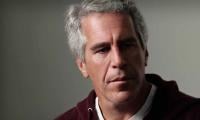How the world takes newborn Pak-Afghan friendship
Pakistan and Afghanistan are not only neighbours, but cousins in many ways. Like all cousins they’ve had their ups and downs in their relationship. Similar religion, different terrain, similar kababs, different breads, all in all, the two countries are starting to overcome the misunderstandings that were embedded ever since
By Syeda Mazhar
June 22, 2015
Pakistan and Afghanistan are not only neighbours, but cousins in many ways. Like all cousins they’ve had their ups and downs in their relationship.
Similar religion, different terrain, similar kababs, different breads, all in all, the two countries are starting to overcome the misunderstandings that were embedded ever since the Cold War era.
It all started when Afghan President Ashraf Ghani visited the GHQ in November 2014, his friendly and cooperative gestures suggested forgetting the bygone hostilities and opening a fresh page. He expressed his government’s interest in “bolstering security and defence ties with Pakistan, including cooperation in training and border management.” As Kabul and Islamabad got threats from ISIS, both administrations understood the gravity of the matter.
Just three months later in February 2015, Afghan government agreed to send six elite Afghan troops to an 18-month course in Abbottabad (Pakistan Military Academy). Pakistan Army being one of the most generous and capable armies in the region, agreed to help. Sending these cadets was a major change by Afghanistan as previously Hamid Karzai repeatedly turned down offers from Pakistan to train the Afghan National Security Forces (ANSF).
To make matters better was Ghani’s decision to suspend for Indian heavy weapons deal, originally made at the behest of his predecessor. Ghani also asked Islamabad to assist the Afghan government in negotiating with the Taliban. For his part, Nawaz Sharif vowed to help target the militants hiding out in border areas, and to work more closely to fight regional terrorism. “Any effort by any militant or group to destabilise Afghanistan will be dealt with severely and such elements will be outlawed and hunted down,” Sharif said. As stated by Sharif, the Pakistan Army has been active in the region since the past year and is dealing with militants bravely and effectively under the leadership of COAS General Raheel Sharif.
Something besides Pakistan and Afghanistan that really affects the Pak-Afghan relationship is the rest of the world. It’s never about just two people; other people are always involved; here those elements are USA, China and India.
Ever since the end of World War II 1945, USA has been reigning the world, be it politically or economically. However, after the Great Recession in 2007, the USA is not interfering as strongly as it previously did.
In December 2014, the USA removed its forces from Afghanistan, and instead deployed a follow-up mission called “Resolute Support.”
As per the newer strategies, Obama states Afghanistan to be a stable partner who can protect its sovereignty. Not only that, but the Pakistan Army has also been protecting the Pakistani jurisdiction at the border, hence keeping an eye on the terrorists in the region.
Talks in Doha between the Afghan government and the Taliban reached no conclusions as the Taliban opposed the “Resolute Support” by USA on the Afghan soil.
Seeing the departure of US/Nato forces, Pakistan Army has been on the watch to check on any ‘spilling’ of terrorists across the border.
However, as the US has recognised Afghanistan as a mature state that can handle its problems, and has withdrawn its forces, we can predict that Pakistan-US relations can go beyond just counter terrorism.
China has been in the good books of both cousins, Pakistan and Afghanistan. China has shown readiness to support the Kabul-Taliban reconciliation. The Taliban leaders visited Beijing to discuss the matter. These three countries working together can help us predict a much brighter and peaceful future in the region.
Pakistan, Afghanistan and China understand the importance of working together to stabilise the region as it affects the economy drastically. China and Pakistan have had their own set of instances to take the friendship further. Linking the Pakistani port of Gwadar on the Arabian Sea and China's western Xingjiang region, the Pak-China Economic Corridor will hopefully soon unravel the resources and finances that both countries are capable of producing if they work together. Xi, who arrived in Pakistan on April 20, was also expected to discuss China and Afghanistan cooperation in dealing with the Muslim separatist groups in china.
Relationship with India, on the other hand, however, has been on the rocks. As predicted, the Indian reaction towards the Pak-Afghan friendship was nothing better than negative. In February, Ashraf Ghani suspended the request by former president Hamid Karzai to India to supply with heavy weapons.
Pakistan has always wanted a peaceful Kabul and has worked with the Afghan government in bringing peace to the area. Pakistani government and Pakistan Army both have been cooperative in overcoming the past animosities and moving forward.
Similar religion, different terrain, similar kababs, different breads, all in all, the two countries are starting to overcome the misunderstandings that were embedded ever since the Cold War era.
It all started when Afghan President Ashraf Ghani visited the GHQ in November 2014, his friendly and cooperative gestures suggested forgetting the bygone hostilities and opening a fresh page. He expressed his government’s interest in “bolstering security and defence ties with Pakistan, including cooperation in training and border management.” As Kabul and Islamabad got threats from ISIS, both administrations understood the gravity of the matter.
Just three months later in February 2015, Afghan government agreed to send six elite Afghan troops to an 18-month course in Abbottabad (Pakistan Military Academy). Pakistan Army being one of the most generous and capable armies in the region, agreed to help. Sending these cadets was a major change by Afghanistan as previously Hamid Karzai repeatedly turned down offers from Pakistan to train the Afghan National Security Forces (ANSF).
To make matters better was Ghani’s decision to suspend for Indian heavy weapons deal, originally made at the behest of his predecessor. Ghani also asked Islamabad to assist the Afghan government in negotiating with the Taliban. For his part, Nawaz Sharif vowed to help target the militants hiding out in border areas, and to work more closely to fight regional terrorism. “Any effort by any militant or group to destabilise Afghanistan will be dealt with severely and such elements will be outlawed and hunted down,” Sharif said. As stated by Sharif, the Pakistan Army has been active in the region since the past year and is dealing with militants bravely and effectively under the leadership of COAS General Raheel Sharif.
Something besides Pakistan and Afghanistan that really affects the Pak-Afghan relationship is the rest of the world. It’s never about just two people; other people are always involved; here those elements are USA, China and India.
Ever since the end of World War II 1945, USA has been reigning the world, be it politically or economically. However, after the Great Recession in 2007, the USA is not interfering as strongly as it previously did.
In December 2014, the USA removed its forces from Afghanistan, and instead deployed a follow-up mission called “Resolute Support.”
As per the newer strategies, Obama states Afghanistan to be a stable partner who can protect its sovereignty. Not only that, but the Pakistan Army has also been protecting the Pakistani jurisdiction at the border, hence keeping an eye on the terrorists in the region.
Talks in Doha between the Afghan government and the Taliban reached no conclusions as the Taliban opposed the “Resolute Support” by USA on the Afghan soil.
Seeing the departure of US/Nato forces, Pakistan Army has been on the watch to check on any ‘spilling’ of terrorists across the border.
However, as the US has recognised Afghanistan as a mature state that can handle its problems, and has withdrawn its forces, we can predict that Pakistan-US relations can go beyond just counter terrorism.
China has been in the good books of both cousins, Pakistan and Afghanistan. China has shown readiness to support the Kabul-Taliban reconciliation. The Taliban leaders visited Beijing to discuss the matter. These three countries working together can help us predict a much brighter and peaceful future in the region.
Pakistan, Afghanistan and China understand the importance of working together to stabilise the region as it affects the economy drastically. China and Pakistan have had their own set of instances to take the friendship further. Linking the Pakistani port of Gwadar on the Arabian Sea and China's western Xingjiang region, the Pak-China Economic Corridor will hopefully soon unravel the resources and finances that both countries are capable of producing if they work together. Xi, who arrived in Pakistan on April 20, was also expected to discuss China and Afghanistan cooperation in dealing with the Muslim separatist groups in china.
Relationship with India, on the other hand, however, has been on the rocks. As predicted, the Indian reaction towards the Pak-Afghan friendship was nothing better than negative. In February, Ashraf Ghani suspended the request by former president Hamid Karzai to India to supply with heavy weapons.
Pakistan has always wanted a peaceful Kabul and has worked with the Afghan government in bringing peace to the area. Pakistani government and Pakistan Army both have been cooperative in overcoming the past animosities and moving forward.
-
 Charlize Theron Delivers Strong Message At 2026 Winter Olympics Opening Ceremony
Charlize Theron Delivers Strong Message At 2026 Winter Olympics Opening Ceremony -
 Lil Jon Reacts To Son Nathan Smith's Death: 'Devastated'
Lil Jon Reacts To Son Nathan Smith's Death: 'Devastated' -
 Bianca Censori Reveals Where She And Kanye West Stand On Having Children Together
Bianca Censori Reveals Where She And Kanye West Stand On Having Children Together -
 Taylor Swift Hypes Olympic Athletes In Surprise Video Message
Taylor Swift Hypes Olympic Athletes In Surprise Video Message -
 Timothy Busfield Charged With Four Counts Of Child Sexual Abuse
Timothy Busfield Charged With Four Counts Of Child Sexual Abuse -
 Kanye West First Contacted Bianca Censori While In Marriage To Kim Kardashian?
Kanye West First Contacted Bianca Censori While In Marriage To Kim Kardashian? -
 Travis Kelce Reveals What His Nieces Really Do When He, Taylor Swift Visit
Travis Kelce Reveals What His Nieces Really Do When He, Taylor Swift Visit -
 Lola Young Makes Career Announcement After Stepping Back From Touring
Lola Young Makes Career Announcement After Stepping Back From Touring -
 Priyanka Chopra Shares Heartfelt Message For Nick Jonas
Priyanka Chopra Shares Heartfelt Message For Nick Jonas -
 Spotify, Major Labels File $13b Lawsuit Over Alleged Music Scraping
Spotify, Major Labels File $13b Lawsuit Over Alleged Music Scraping -
 Travis Kelce Opens Up About Being Backup Plan For His Nieces
Travis Kelce Opens Up About Being Backup Plan For His Nieces -
 Winter Olympics 2026: Chinese Robot Dance Goes Viral In Milan
Winter Olympics 2026: Chinese Robot Dance Goes Viral In Milan -
 Jessica Biel Urged To Divorce Justin Timberlake?
Jessica Biel Urged To Divorce Justin Timberlake? -
 Rebecca Ferguson Gets Honest About Having First Kid With 22 Year Older Man
Rebecca Ferguson Gets Honest About Having First Kid With 22 Year Older Man -
 Epstein Ties: UK Police Search Properties In Probe Into Peter Mandelson
Epstein Ties: UK Police Search Properties In Probe Into Peter Mandelson -
 Andrew Mountbatten-Windsor’s Friendship With A Child Sex Offender Turns His Future Murkier
Andrew Mountbatten-Windsor’s Friendship With A Child Sex Offender Turns His Future Murkier



